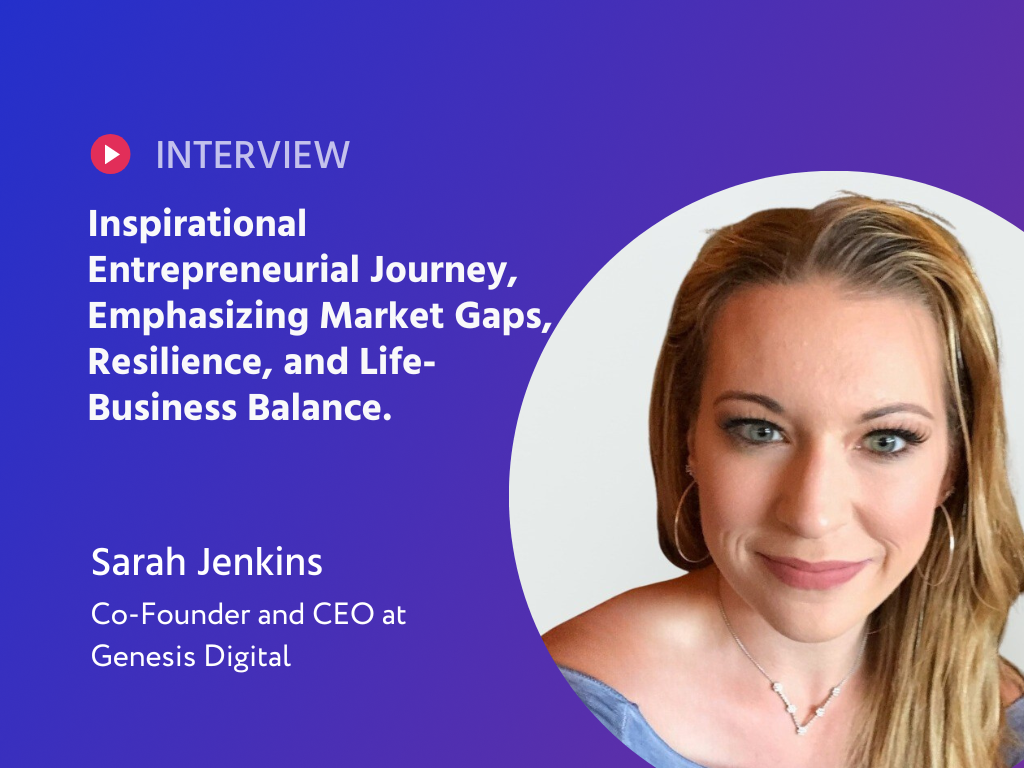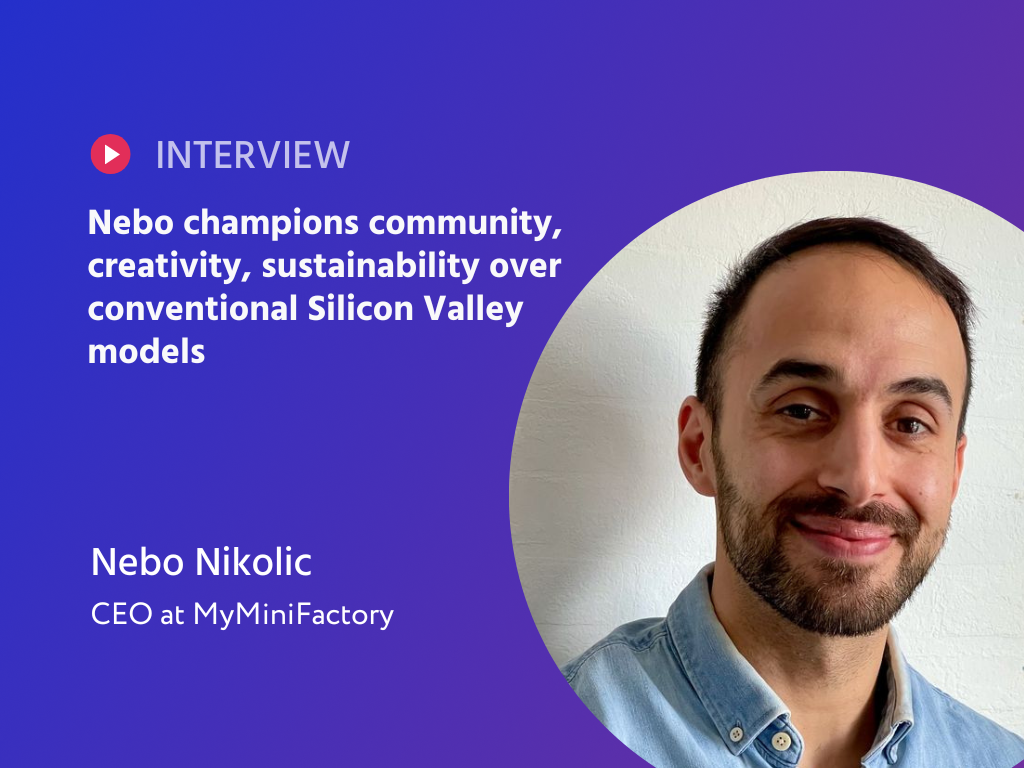In this week's episode of Bright Founders Talk at Temy, we delve into the fascinating journey of Richard White, the founder and CEO of Fathom. Richard, transitioning from a self-proclaimed mediocre software engineer to a product designer and eventually a multiple-time founder, provides a rich source of insight and inspiration. Fathom, born out of the necessity to streamline the taxing process of meeting documentation, leverages AI to assist in note-taking during virtual meetings. This innovation joins calls on platforms like Zoom, Microsoft Teams, and Google Meet to record, transcribe, and organize meeting notes efficiently.
The Evolution of a Founder: From Coding to Leading with Richard White of Fathom
As Richard White recounts his journey from coding to founding a successful AI-driven company, it becomes clear that his story is not just about technology but also about personal evolution. Richard candidly shares his initial days as what he humorously calls a "mediocre" software engineer. Over time, he morphed into a product designer and then a seasoned founder. His current project, Fathom, is a testament to his journey—transforming the laborious task of taking meeting notes into a seamless digital experience. The app’s ability to record, transcribe, and manage meeting notes across various platforms like Zoom and Microsoft Teams not only solves a universal problem but also showcases Richard's vision of making technology serve basic human needs in business communications.
Diving deeper into his philosophy, Richard's approach to leadership echoes his coding days—fast, effective, but occasionally imperfect. “It's like the golden path... we call it,” he explains, emphasizing the startup ethos of moving quickly but accepting the reality of bugs and edges. This reflection on his past highlights a vital part of his growth from a hands-on programmer to a leader who now views his team as an "Ironman suit"—a powerful extension that brings his ideas to life without him needing to code. This transition wasn't just about stepping back; it was about stepping up in strategy and vision, ensuring his team felt empowered to innovate while he guided the helm with a steady hand.
Richard's narrative is both inspiring and instructive, especially when he discusses the need for control in the early stages of a startup versus the art of delegation as the company grows. “You have to be a bit of a control freak, or really just more of like, it works better when it's all painted by a central artist,” he reflects. This philosophy underscores a broader lesson for entrepreneurs about balancing hands-on management with trusting others to paint parts of the larger picture. His best quote, condensed for impact: "Having a good team is like wearing an Ironman suit—I think about a thing, and it kind of happens." Richard’s journey from a solitary coder to a leader supported by a strong team mirrors the evolution many founders hope to experience, making his insights not just relevant but resonant for anyone looking to make their mark in the tech world.
Riding the COVID Wave: Richard White Discusses Strategic Timing and Entrepreneurial Insight
As the world shifted to remote work at the onset of the COVID-19 pandemic, Richard White's Fathom found itself in a unique position to capitalize on new trends in workplace communication. Originally designed for remote teams, Fathom suddenly became a critical tool for companies navigating the sudden surge in digital meetings. Richard explains how the pandemic expanded their use case from mostly external sales meetings to virtually all internal meetings. This unexpected shift not only created a substantial demand for Fathom's services but also cemented their partnership with Zoom, further aligning their business with one of the most pivotal tools of the remote work era. "It was like hitching your star to the right wagon," Richard quips, acknowledging the serendipitous alignment with Zoom's skyrocketing usage.
Diving into the personal implications of the pandemic, Richard shares how the global shutdown helped streamline his focus and eliminate social distractions, which he considers a significant hurdle in entrepreneurship. This isolation allowed him to fully commit to the development of Fathom, a process he started in a cabin at Lake Tahoe. Richard reflects on the differences in entrepreneurial lifestyle, comparing the relentless grind of his youth with the more strategic, experience-driven approach he now employs. He notes, "COVID made all the social commitments go away, and what better time to start a company and work your butt off?" This period of forced isolation turned out to be a surprisingly effective incubator for creativity and focus, demonstrating that sometimes, external constraints can lead to significant internal growth.
COVID made all the social commitments go away, and what better time to start a company and work your butt off?
Richard's commentary on the stages of his career—from a fledgling founder in his twenties to a seasoned entrepreneur—provides valuable insights into the evolution of startup strategies. He likens his first startup experience to being dropped into a game of Minecraft without any instructions, a scenario filled with endless possibilities but overwhelming uncertainty. In contrast, his approach with Fathom was more akin to playing the game with the benefit of experience, knowing exactly where to invest effort and which strategies to deploy. This shift from open-ended exploration to targeted execution exemplifies the learning curve that many entrepreneurs face and underscores the importance of experience in navigating the complex terrain of startup culture.
Networking: The Entrepreneurial Lifeline in Richard White's Journey
Richard White emphasizes the perennial importance of networking in the lifecycle of a startup. From scrappy beginnings to strategic advancements, his experience with his initial company, UserVoice, showcases networking's undeniable value. Richard recounts how he met one of his co-founders on Craigslist and another through open-source projects, underscoring the necessity of being inventive in team building when your network isn’t vast. He contrasts this with friends who attended entrepreneurial powerhouses like Stanford or MIT, who had the advantage of an immediate, rich network post-graduation. Richard's reflection, "Your network is pretty important... it's just for figuring out who am I going to work with," resonates as a fundamental truth for anyone starting out or scaling up.
Your network is pretty important… it's just for figuring out who am I going to work with
Expanding on the theme of networking, Richard shares insights from launching Fathom, which coincided with the debut of Zoom's new app marketplace. This timing wasn't just luck; it was a product of acute awareness and the ability to pivot quickly—a skill honed through years of navigating startup ecosystems. His proactive approach to cold emailing the head of the new marketplace exemplifies how vital connections can be leveraged to secure early advantages. Richard’s story illustrates that while the tech might be complex, the fundamentals of hustle and relationship-building remain unchanged. He advises, "Do whatever it takes to get involved in new distribution channels," highlighting the blend of persistence and opportunity that defines startup success.
Reflecting on the challenges and learning curves associated with integrating Fathom into the Zoom marketplace, Richard discusses the fine line between leveraging opportunities and getting caught up in external dependencies. His experience dealing with delays and adjustments in Zoom's launch schedule taught him the importance of adaptability and realistic expectations when dealing with larger partners. He candidly shares, "I got close to burning myself out, trying to influence this larger company," an honest acknowledgment of the limits of influence a small startup can have over a tech giant. Ultimately, this partnership propelled Fathom to rapid user growth, affirming that while the entrepreneurial journey is fraught with challenges, strategic networking and seizing opportunities can provide substantial payoffs.
Evolution of Seed Funding: Navigating the Changing Tides from UserVoice to Proudhon
When Richard White reflects on the seismic shifts in seed stage funding from his early days with UserVoice in 2008 to the present with Proudhon, the landscape seems almost alien. Back in 2008, the challenge for investors was simply discovering startups. "You just had to be one of the top three startups that an investor saw that month," Richard chuckles, revealing the small ponds in which entrepreneurs once swam. This era was defined by an asymmetry of information where only a few had a clear sight of emerging opportunities. Fast forward to today, and the scenario has flipped: information flows freely, and consequently, capital chases fewer but more visible ventures, creating an intensely competitive environment.
You just had to be one of the top three startups that an investor saw that month
In this new era, the recent market correction has also reshaped the expectations and realities of fundraising. Richard articulates the stark difference: "We raised money at Demo Day without a product, just an idea—a playbook you couldn't run even today." This statement captures the exuberant days of the longest bull market in tech, which has since given way to a more measured approach. Entrepreneurs now face a market that values demonstrable engagement and traction over sheer potential, a middle ground that mixes the optimism of the past with a more rigorous present. Richard emphasizes the enduring importance of showing genuine user love for your product, suggesting that "if you have 100 people who really love your product, you're set for the next stage."
Amidst these reflections, Richard also touches on the challenges faced by customer-facing teams in a hybrid world, underlining how products like Fathom adapt to meet these new demands. "Ambient awareness is gone in a remote setting," he notes, stressing how Fathom’s tools help managers gain insights into team dynamics they can no longer observe directly. This pivot not only highlights Fathom’s responsiveness to market needs but also underscores a broader theme in Richard’s narrative: the constant adaptation and learning required to stay relevant and successful. Entrepreneurs must navigate not only the evolution of funding landscapes but also the shifting needs of their markets and teams.





